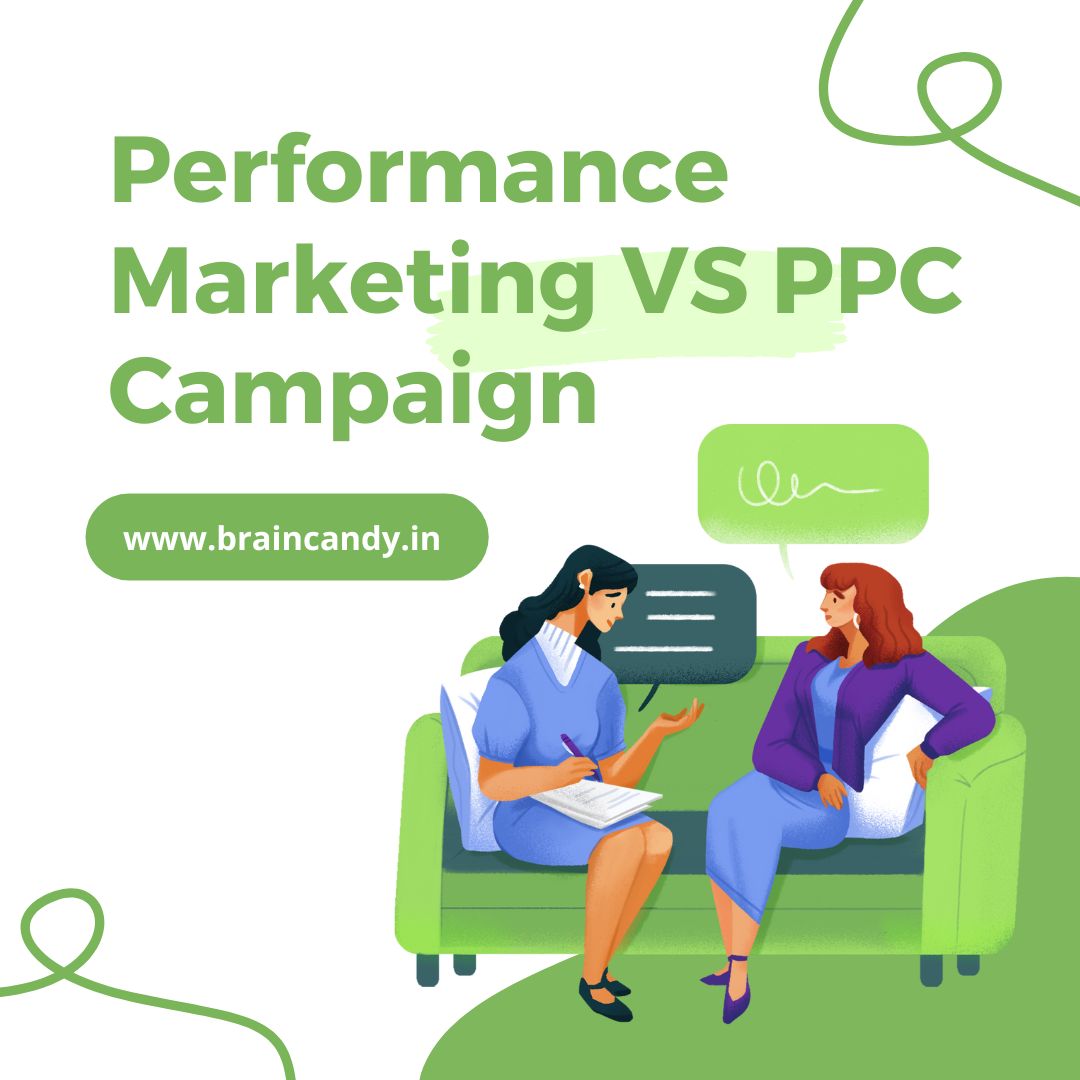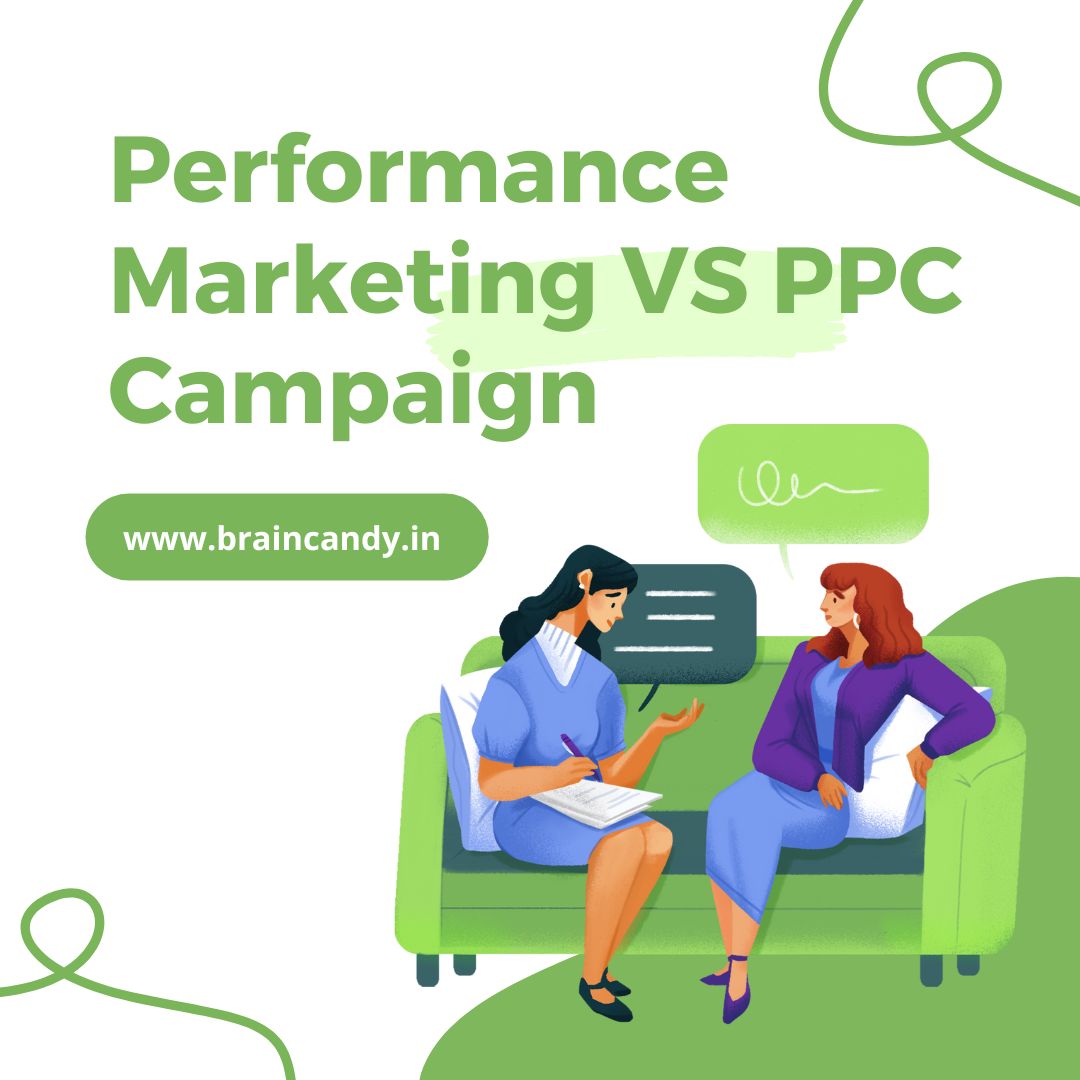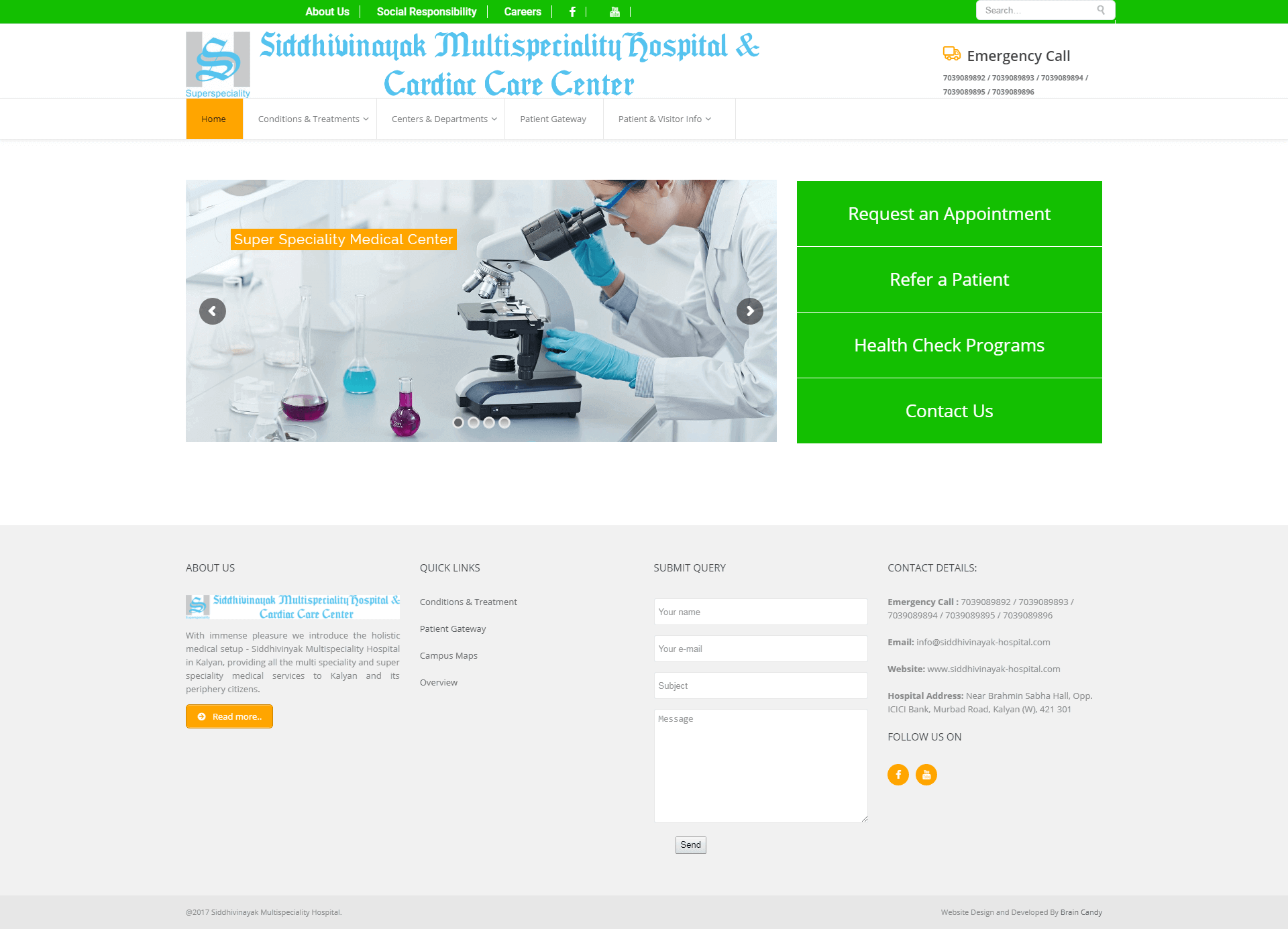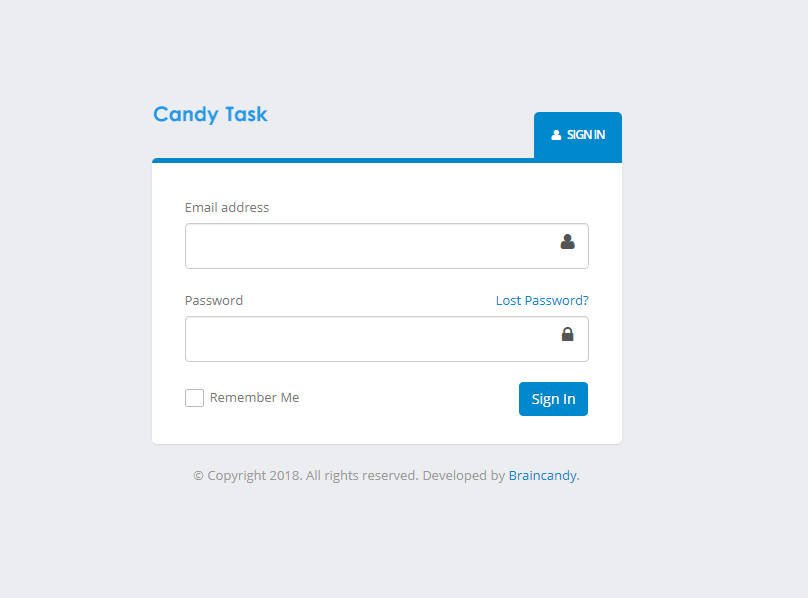- BY braincandy
- POSTED IN Uncategorized
- WITH 0 COMMENTS
- PERMALINK
- STANDARD POST TYPE


Performance marketing and PPC (Pay-Per-Click) campaigns both aim to drive measurable outcomes, but they differ in their scope, payment models, and types of strategies:
- Performance Marketing
– Scope: Performance marketing is a broader strategy that covers any digital marketing efforts where advertisers pay based on specific actions or outcomes. These actions could be sales, leads, app downloads, sign-ups, or clicks.
– Objective: It focuses on achieving targeted, measurable results across various channels, such as display ads, affiliate marketing, social media ads, and influencer partnerships, with an emphasis on ROI and cost-effectiveness.
– Payment Model: Advertisers pay only when the desired action is completed. Common models include cost-per-click (CPC), cost-per-action (CPA), and cost-per-lead (CPL).
– Channels Used: Performance marketing can include PPC but also extends to affiliate marketing, programmatic advertising, native ads, and even influencer campaigns when these campaigns are structured to pay based on conversions or actions.
- PPC Campaign
– Scope: PPC is a specific form of online advertising where advertisers pay each time a user clicks on their ad. It’s commonly associated with search engines (like Google Ads) but can also apply to social media platforms and display networks.
– Objective: PPC campaigns are typically focused on driving traffic to websites or landing pages through targeted ads, primarily aiming for clicks but often optimized for conversions (such as purchases or sign-ups).
– Payment Model: The advertiser pays based on the number of clicks on the ad, irrespective of what happens after the click. This can make PPC relatively high-risk if clicks do not lead to conversions.
– Channels Used: PPC is specific to search engines (Google, Bing), display ads, and some social media platforms (Facebook, Instagram, and LinkedIn). Each click incurs a direct cost to the advertiser.
Key Differences
– Scope: Performance marketing is broader and can include PPC as one tactic among many others, while PPC is a specific form of advertising focused solely on paying per click.
– Payment Triggers: In PPC, payment is based on clicks only, whereas performance marketing can use various payment triggers (e.g., per sale, per lead, or per action).
– Channel Variety: Performance marketing can cover a wider range of channels and ad types, from affiliate networks to influencer marketing, while PPC is usually associated with paid search and display ads.
 While PPC campaigns are one aspect of performance marketing, performance marketing encompasses a wider range of activities, all aimed at paying only for tangible, measurable outcomes—whether through clicks, leads, or sales.
While PPC campaigns are one aspect of performance marketing, performance marketing encompasses a wider range of activities, all aimed at paying only for tangible, measurable outcomes—whether through clicks, leads, or sales.












